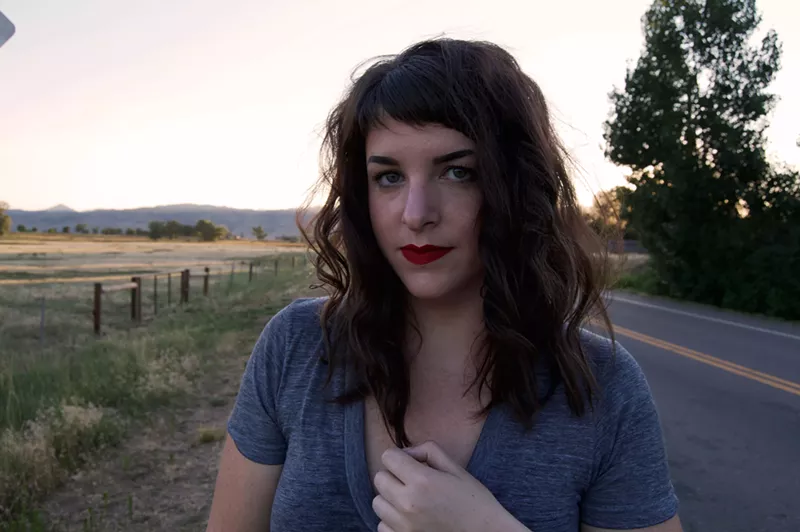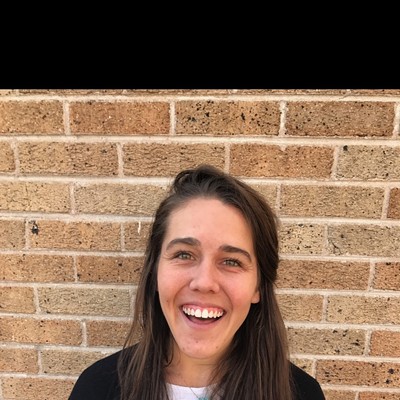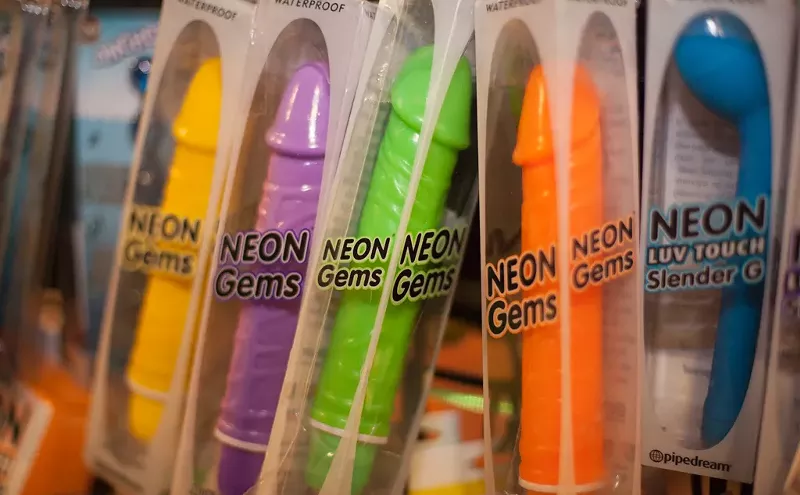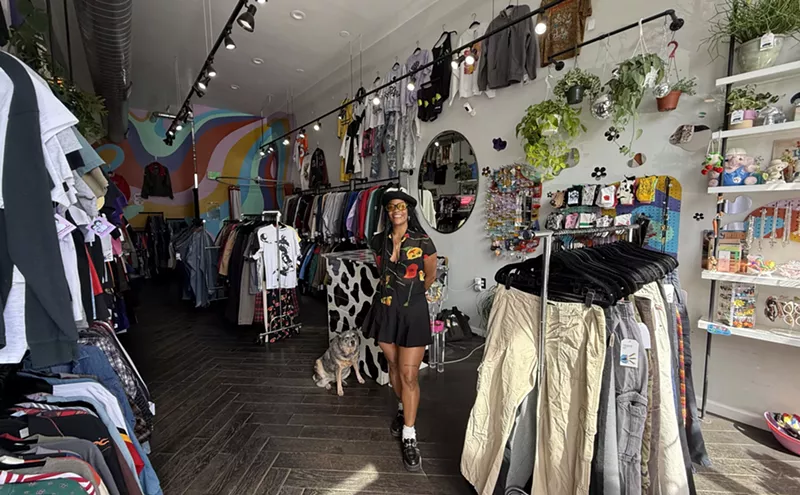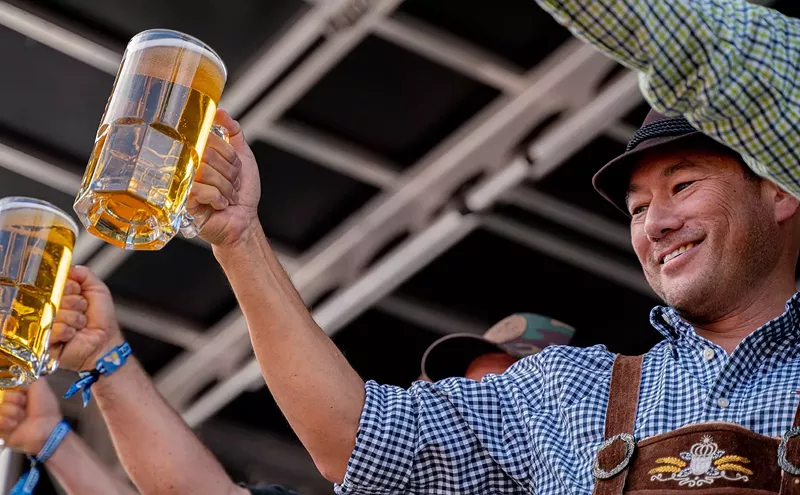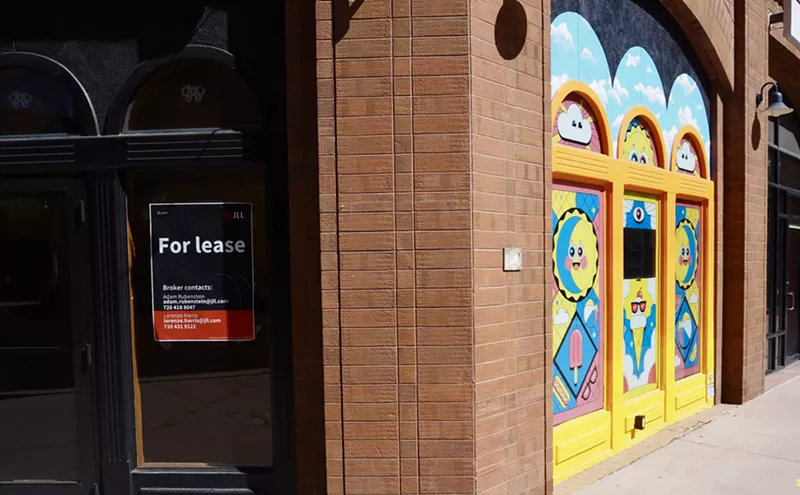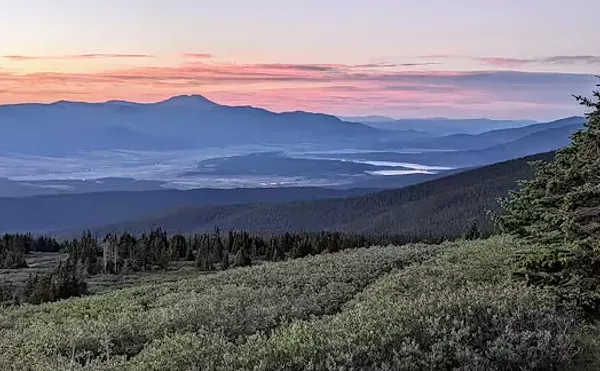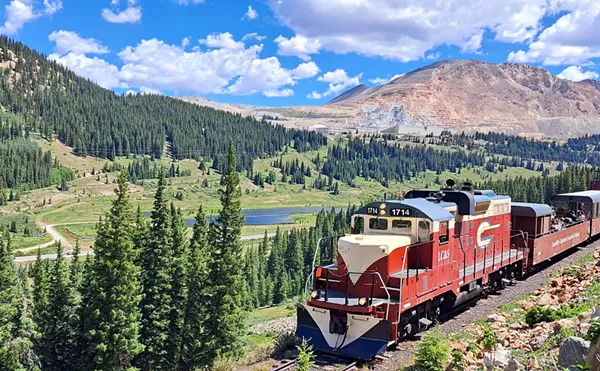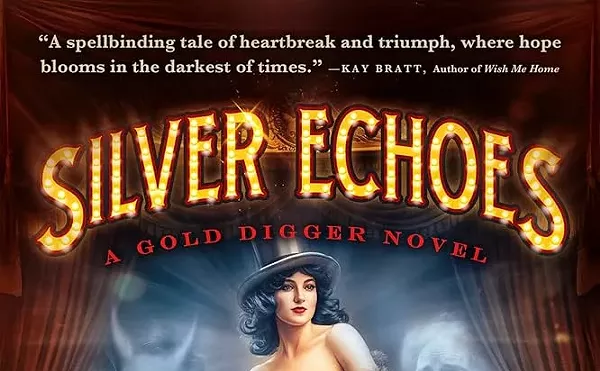When asked about her forthcoming book of poetry, Drive Here and Devastate Me, poet Megan Falley noted that it's full of love poems, something she doesn’t usually find herself writing.
“I think I have probably felt this way with every new book, but it’s the one I feel most proud of and most excited about,” Falley says. “It feels just like more representative of me and the growth that I’ve done in the past few years and coming more into my identity. I never really wrote love poems, and there are so many love poems. I’m really excited about that.”
Falley found that the love poems in Drive Here and Devastate Me were some of the easiest to write. This new collection, her fourth, touches on topics such as gender, cell-phone and social-media toxicity and addiction, feminism and body image — each piece stemming from a place of love. According to Falley, even in writing about the Pulse nightclub shooting in Orlando, she couldn’t keep her love out of it.
“Love became a new secret passageway into everything I wanted to speak to,” she describes. “Love was always the entry point, always the key.”
She grew up in Valley Stream, New York, on the border of Long Island and Queens, and later lived in Brooklyn. After touring for a year and spending some time on Long Island, she left New York in June 2016 and joined her partner, Andrea Gibson, in Colorado, just north of Boulder. Her poem “Holy Thank You for Not,” references the move: “Remember when you moved across the country for love in two days when it was supposed to take four? That’s how much love fuels you. Amazing. Drive through the night for love, no sleep until love.”
The shift in her surroundings was also reflected in her writing.
“I think, in a huge way, I allowed romantic love to consume me in these last couple of years, in a wild way, a devastating way, and that love bled into all my language, my creativity, my highway thoughts,” Falley explains. “There’s sort of this idea that no one writes love poems anymore, but for me that felt like not writing in the first person anymore. Love became me.”
Falley left New York at a difficult time personally, but felt that coming to Colorado gave her space to heal and a lot to appreciate, from the Denver poetry community to the state’s natural beauty.
“I left New York at the hardest time of my whole life, but it was also positive because I was moving out here for love,” she says. “I had lost a lot of community, and there were a lot of big shifts. It was kind of my 'Saturn returns' time. And then I moved out here and the pace was slower than New York, obviously. I’m really slow-paced. Like really, really slow. I’ve loved that. ... It’s definitely a different life, but I actually feel that in the two years I’ve been here, I have more roots and community than I had in 26 years or whatever living in New York, which is pretty wild.”
Another facet to her growth over the past few years was therapy. Some lessons learned there also impacted the writing of this book.
“I’ve been in a lot of therapy over the last couple of years. ... My therapist talks about this [concept] called the triangle, where you’re either the hero, the villain or the victim,” she says. “Our whole culture, or in arguments, you put yourself into one of those spots, and it lets you be less of yourself. I think there are ways where — especially, I think this art form itself — there’s lots of making other people villains; there’s lots of making yourself the victim or the hero of something. I really don’t think this book does a lot of that.”
Because of this, she finds she acknowledges all aspects of human beings, both the good and the bad, in her more recent work.
“[This book] is more nuanced and more holistic,” she says. “I have that poem ‘Holy Thank You for Not,’ and it’s like, ‘You’re awful and wonderful. Wretched and beautiful.’ More allowance to be a whole person and have that be okay. I think more [complexity] to being a person and realizing your own role in things, not like a victim of circumstance and whatnot.”
Falley, who first entered spoken word as a freshman in college, recalls her first attempt at it: “[It] was an angry, anti-war Bush poem that all rhymed, and my hands shook ferociously when I read it.” Since then, she has covered social-justice issues like queerness and body image in her work and has responded to current events like the Pulse massacre.
The poetry Falley writes is political; she notes that that's the essence of spoken word.
“I think it’s important when you have a platform that you use that platform,” she says. “That’s not always something that’s easy for me. It’s something I have to challenge myself to do, because I think culturally there’s a lot of fear of doing it wrong. I think that fear is helpful in some ways but mostly toxic, in that I think a lot of people don’t try to be of service, but they try not to fuck up. Or they try to have the perfect soundbite. So I’ve tried to let go of that and try to see if I have a platform and I can speak to something. And who knows what is preaching to the choir or what is changing someone’s mind. I think if people are listening to you and there is an injustice you want to speak to, that is really crucial.”
What ultimately inspires her work is speaking the truth.
“If there is a truth that I’m not speaking, it clogs me from speaking anything else,” she says. “So I think what does motivate me is speaking every truth.”
Megan Falley will be reading from her work at 7 p.m. Saturday, September 29, at madelife, 2000 21st Street in Boulder.

Audio By Carbonatix
[
{
"name": "GPT - Billboard - Slot Inline - Content - Labeled - No Desktop",
"component": "23668565",
"insertPoint": "2",
"requiredCountToDisplay": "2"
},{
"name": "STN Player - Float - Mobile Only ",
"component": "23853568",
"insertPoint": "2",
"requiredCountToDisplay": "2"
},{
"name": "Editor Picks",
"component": "17242653",
"insertPoint": "4",
"requiredCountToDisplay": "1"
},{
"name": "Inline Links",
"component": "18838239",
"insertPoint": "8th",
"startingPoint": 8,
"requiredCountToDisplay": "7",
"maxInsertions": 25
},{
"name": "GPT - 2x Rectangles Desktop, Tower on Mobile - Labeled",
"component": "24956856",
"insertPoint": "8th",
"startingPoint": 8,
"requiredCountToDisplay": "7",
"maxInsertions": 25
},{
"name": "Inline Links",
"component": "18838239",
"insertPoint": "8th",
"startingPoint": 12,
"requiredCountToDisplay": "11",
"maxInsertions": 25
},{
"name": "GPT - Leaderboard to Tower - Slot Auto-select - Labeled",
"component": "17676724",
"insertPoint": "8th",
"startingPoint": 12,
"requiredCountToDisplay": "11",
"maxInsertions": 25
}
]

